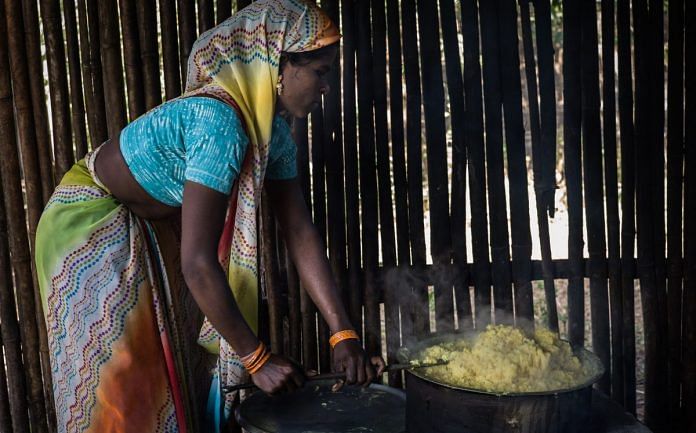Rakesh Srivastava says replacing rations with cash transfers for children & women in poll year would look like government is stopping rations.
New Delhi: The NITI Aayog and the women and child development (WCD) ministry are locked in a tussle over whether take-home rations at anganwadis should be replaced by cash transfers.
And now, WCD secretary Rakesh Srivastava has said replacing the old scheme with direct transfers would send out the wrong message in an election year.
“If we start cash transfers in an election year, the common perception will be that government has stopped rations,” Srivastava said at a panel discussion Tuesday.
Under the Integrated Child Development Services (ICDS) scheme, around 14 lakh anganwadis give take-home rations to children under three years of age, as well as to pregnant and lactating women. They also provide hot cooked meals for children between three and six years of age.
Also read: Modi govt to observe September as National Nutrition Month
Since the rations provided under the scheme are given at the rate of Rs 8 per day for children and Rs 9.50 per day for women, the impression will be that the government is doling out a paltry sum of Rs 200 per month, Srivastava said.
The panel discussion was organised by Chase India, a public policy advocacy firm.
A sticky issue
Srivastava’s comment comes in the background of the long-standing disagreement between the NITI Aayog and WCD minister Maneka Gandhi. While the NITI Aayog has long maintained that food given under the scheme should be substituted with cash given to beneficiaries through direct benefit transfer, Gandhi has opposed it.
Recently, in what was perceived to be a vindication for the NITI Aayog’s stand, the National Council on India’s Nutrition Challenges (NCINC) gave a go-ahead to initiate a pilot project for the cash transfer scheme in 10 districts.
“The ministry is going to come up with a scheme to facilitate cash transfers to beneficiaries in compliance with the Food Security Act (FSA),” Srivastava said. “If we do it without bringing a new scheme, it would violate the FSA norms…That’s why we are running a pilot in 10 districts right now, and will then assess,” he said.
Cash transfers not a panacea
Alok Sharma, an advisor in the NITI Aayog, has said it is important to first assess and evaluate the findings of the pilot study. “DBT is a way to eliminate the messiness of governance, but there are several challenges. We need to test the idea, and gather evidence before we scale it up,” he said.
Also read: Putting kids up for adoption may soon earn shelters money
“Many times, the beneficiary does not even know that the money has reached the account…Not all women have phones, so communication is a problem…The government can send the money, but how do we know it has reached the beneficiary?”
Interestingly, these were some of the issues because of which Maneka Gandhi had opposed cash transfers.
While the minister had strongly backed the need for substituting packaged nutrients with take-home rations, her proposal was scrapped by the NCINC earlier this year.



